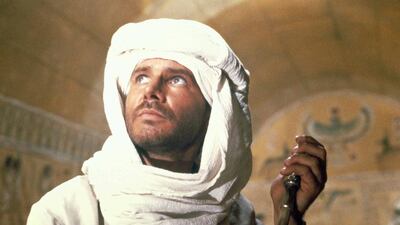Let me test out a theory on you. One of the biggest movies of all time was Raiders of the Lost Ark. It was directed by Steven Spielberg and produced by George Lucas – pretty much the most successful team of moviemakers in history – and it spawned three follow-up pictures, each one a major box office success.
The hero character of the series was called, what? Do you remember?
Of course you do. It was “Indiana Smith”, the swashbuckling archaeologist action man played, perfectly, by Harrison Ford.
That’s what he was called at first, anyway. During the development phase of the project, though, “Indiana Smith” just didn’t seem right to Spielberg and Lucas. There was just some mysterious spark that seemed missing from the name, some lack of zip or punch.
So they finally settled on “Indiana Jones”, and the rest was a multibillion dollar movie.
The question this raises is, would the movies have been as successful if Spielberg and Lucas had stuck with their original name? Does Indiana Smith and the Temple of Doom have the same magic ring? I can't help but think not. And although there is no hard evidence to prove this, there's a powerful sense that "Indiana Jones" is the name for a major movie here, and "Indiana Smith" is the name of a one-picture so-so performer.
In other words, it’s hard to know when you embark on making a movie – or a television show or, I suppose, any other kind of risky enterprise – exactly what’s going to work and what’s going to fail. Or why.
There are about 700 million iPhones in use worldwide, though apparently very few of their owners are much interested in Steve Jobs, the creator and impresario of the smartphone. The recently released Steve Jobs, a biographical film directed by Danny Boyle and written by Aaron Sorkin, has sputtered to a slow crawl at the box office. That came as an unwelcome surprise to the studio, Universal, which expected the movie to make about US$20 million last week. It took in less than $10 million.
And that's not the only highly-anticipated autumn movie that has had a hard time finding an audience. Rock the Kasbah, a Bill Murray-starring action comedy and the musical Jem and the Holograms both flopped in cinemas. And Vin Diesel's latest project, The Last Witch Hunter, hasn't shown much success there, either.
It's easy in hindsight to point out each picture's flaws. Audiences may not be interested in more Vin Diesel after this year's gigantic hit Furious 7. And there's no real reason why iPhone owners would be all that intrigued by the life and times of Apple's CEO – after all, everyone owns a toaster, too, but who would line up to see a biographical film about Charles Strite? (He invented the modern pop-up toaster, which I'm sure you knew.)
Maybe people are tired of Bill Murray. Maybe they don't want to see any more musicals. Maybe the lacklustre box office response to Tom Hanks' and Steven Spielberg's latest collaboration, Bridge of Spies, is just a symptom of bad timing or seasonal tastes. But all told, the autumn losers at the box office represent more than $200 million worth of studio investments when the cost of each film and the requisite promotional efforts are totalled up. A rational person – someone fluent in current business trends and elemental economic philosophy – might expect the studios involved to rethink their strategy, to rework the ways in which projects get moved from "maybe" to "roll film".
That won't happen. The people who make movies – and the people who pay for them, which includes studios and hedge funds and large pools of investment cash – know that there really is no way to know why one movie soars and another crashes. There isn't a rational explanation behind the success of The Martian and the total collapse of The Last Witch Hunter. Both movies have big stars; both have compelling stories with book tie-ins; both promise a certain kind of action and suspense. And there's no particular underlying logic to explain why Bill Murray's latest offering suffered while Jack Black's, Goosebumps, has done so well.
Trying to make sense of it all, in fact, is a sure-fire way to lose more. People who come to Hollywood convinced they’re gifted with a nose for hits – people, in other words, who are delusional and possibly insane – are like those inveterate gamblers who insist that have a “system” to beat the house.
There is no system. Sometimes you make a movie that stars Indiana Jones, and sometimes you make a movie that stars Indiana Smith. You never really know which is which until the movie is in the cinema. And by then it’s too late.
Next week, the latest James Bond picture gets released in the UAE and the US. Spectre is already doing spectacular business in its first week in London, so expectations are high.
It’s a good thing, then, Ian Fleming didn’t name his famous spy something else. It’s hard to imagine audiences would still be excited by this piece of dialogue: “The name is Smith. James Smith.”
Rob Long is a writer and producer based in Hollywood
On Twitter: @rcbl

